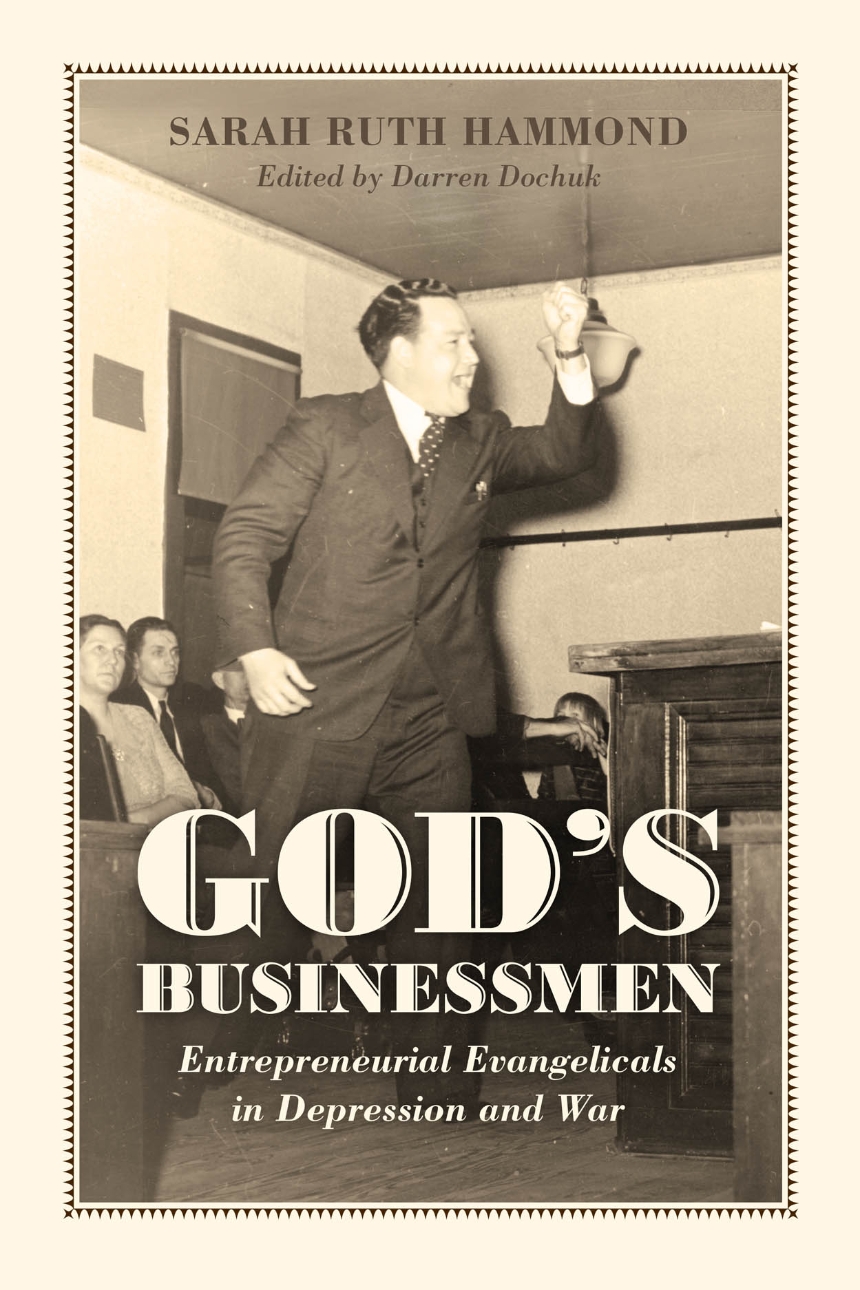God’s Businessmen
Entrepreneurial Evangelicals in Depression and War
9780226849201
9780226509778
9780226509808
God’s Businessmen
Entrepreneurial Evangelicals in Depression and War
How evangelical businessmen in the 1930s and 1940s joined their religious and business lives.
The evangelical embrace of conservatism is a familiar feature of the contemporary political landscape. What’s less well-known, however, is that the connection predates the Reagan revolution, going all the way back to the Depression and World War II. Evangelical businessmen at the time were quite active in opposing the New Deal—on both theological and economic grounds—and in doing so claimed a place alongside other conservatives in the public sphere. Like previous generations of devout laymen, they self-consciously merged their religious and business lives, financing and organizing evangelical causes with the kind of visionary pragmatism that they practiced in the boardroom.
In God’s Businessmen, Sarah Ruth Hammond explores not only these men’s personal trajectories but also those of the service clubs and other institutions that, like them, believed that businessmen were God’s instrument for the Christianization of the world. Hammond presents a capacious portrait of the relationship between the evangelical business community and the New Deal—and in doing so makes important contributions to American religious history, business history, and the history of the American state.
The evangelical embrace of conservatism is a familiar feature of the contemporary political landscape. What’s less well-known, however, is that the connection predates the Reagan revolution, going all the way back to the Depression and World War II. Evangelical businessmen at the time were quite active in opposing the New Deal—on both theological and economic grounds—and in doing so claimed a place alongside other conservatives in the public sphere. Like previous generations of devout laymen, they self-consciously merged their religious and business lives, financing and organizing evangelical causes with the kind of visionary pragmatism that they practiced in the boardroom.
In God’s Businessmen, Sarah Ruth Hammond explores not only these men’s personal trajectories but also those of the service clubs and other institutions that, like them, believed that businessmen were God’s instrument for the Christianization of the world. Hammond presents a capacious portrait of the relationship between the evangelical business community and the New Deal—and in doing so makes important contributions to American religious history, business history, and the history of the American state.
240 pages | 6 x 9 | © 2017
Economics and Business: Economics--History
History: American History
Religion: American Religions
Reviews
Table of Contents
Editorial Note
Acknowledgments
List of Abbreviations
Introduction
Depression
1. R. G. LeTourneau’s Prosperity Gospel
2. Herbert J. Taylor, Rotarian Fundamentalist
3. Corporate Christianity’s Civil Activism
War
4. The Wartime Vision of Laymen’s Evangelism
5. The Wartime Consolidation of Laymen’s Evangelism
Conclusion
Notes
Index
Acknowledgments
List of Abbreviations
Introduction
Depression
1. R. G. LeTourneau’s Prosperity Gospel
2. Herbert J. Taylor, Rotarian Fundamentalist
3. Corporate Christianity’s Civil Activism
War
4. The Wartime Vision of Laymen’s Evangelism
5. The Wartime Consolidation of Laymen’s Evangelism
Conclusion
Notes
Index
